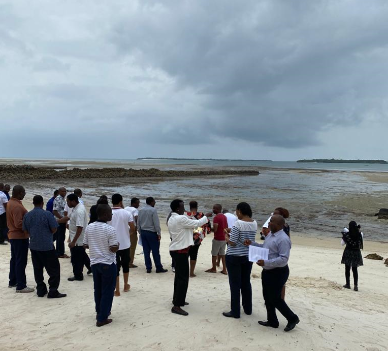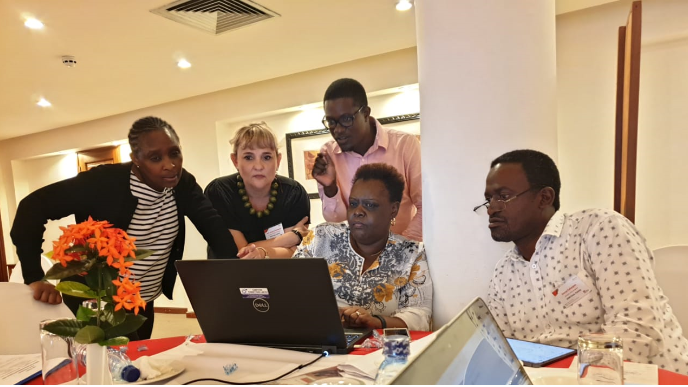FCDO-World Bank-UNHCR
“Building the Evidence on Protracted Forced Displacement: A Multi-Stakeholder Partnership”
– YOUNG FELLOWSHIP PROGRAM –
Up to 10 Fellowships, July 2020-June 2021 Deadline for applications: March 6th, 2020.
Note: File updated on February 21st with the revised application link.
To download the PDF version
Background
In 2016, the UK Foreign, Commonwealth & Development Office (FCDO) partnered with the World Bank and the United Nations High Commissioner for Refugees (UNHCR) to establish a research program on forced displacement called “Building the Evidence on Protracted Forced Displacement: A Multi-Stakeholder Partnership”. The objective of the program is “to improve the wellbeing of the forcibly displaced and of host communities by improving global knowledge on the effectiveness of policies and programs that target these populations”. The program is administered by the Fragility, Conflict, and Violence (FCV) department of the World Bank and currently includes 5 pillars: 1) Research on global questions related to forced displacement in the education, health, social protection, and jobs sectors; 2) Impact evaluations of programs administered to refugees and internally displaced persons (IDPs); 3) A research program on gender and forced displacement; 4) Research on forced displacement on selected topics not covered under pillars 1-3 and 5) A Young Fellows program for post-doc scholars interested in research on forced displacement. The first cycle of the Young Fellows program was launched in June 2018 and saw the participation of 10 African scholars who worked at the World Bank and the UNHCR for a period of 12 months between July 2018 and June 2019. The program proved to be a success as all scholars were able to produce high-quality research and subsequently found employment in international organizations, including the World Bank and the UNHCR. Based on the experience of this first cycle, the FCDO-WB-UNHCR research program on forced displacement is now launching a second cycle opened to young scholars globally. The program is offering up to 10 new fellowships for the period July 1, 2020 – June 30, 2021. Fellowship The fellowship consists of a Short-Term Consultancy (STC) contract with the World Bank for 150 days to be used over the period of one fiscal year between July 2020 and June 2021. This is the maximum number of days allowed by the World Bank’s STC rules and does not preclude fellows from holding other positions or consulting contracts with other organizations. Consulting fees are based on education and work experience as established by the World Bank STC regulations. The World Bank will also provide one return ticket in economy class between the home country and the location of the consultancy. Fellows will be assigned to a unit in the World Bank or the UNHCR and a supervisor within the unit. The location of the consultancy is agreed between the fellows, supervisor, and the program’s administrator. This location can be in World Bank or UNHCR headquarters, field locations, or anywhere else provided is agreed with the relevant parties. Each fellow will work with existing data available at the World Bank, UNHCR, or elsewhere and is expected to produce two working papers during the course of the fellowship. The topic of the papers is decided jointly by the fellow, supervisor, and the program’s administrator and is expected to relate to the World Bank or UNHCR operational work. Good quality papers will be published in the World Bank Policy Research Working Paper series and these papers are expected to be submitted to peer-reviewed journals following publication in the WP series.
Eligibility
Mandatory requirements:
- A completed Ph.D. in Social Sciences by June 30, 2020 (Economics, Statistics, Politics, Sociology, etc);
- Strong quantitative skills (Statistics, Econometrics, Machine Learning, Impact evaluations skills);
- 35 years of age or below by December 31, 2020;
- Citizen of a low- or middle-income country as defined by the World Bank;
- A proven interest in forced displacement issues.
Priority will be given to scholars with:
- A Ph.D. thesis addressing forced displacement questions;
- Personal forced displacement experiences (Refugees, Internally Displaced Persons and other scholars who have personally experienced forced displacement situations);
- Proven work experience in forced displacement contexts;
- A publication record.
Application
Please submit a Curriculum Vitae and a cover page at this link. The cover page should include the following information: description of forced displacement experience and proposed research topic.
The deadline for application is March, 6th, 2020. Given a large number of expected applicants, submissions will not be acknowledged. Shortlisted candidates will be notified by April 17th, 2020
For more information refer to this webpage

